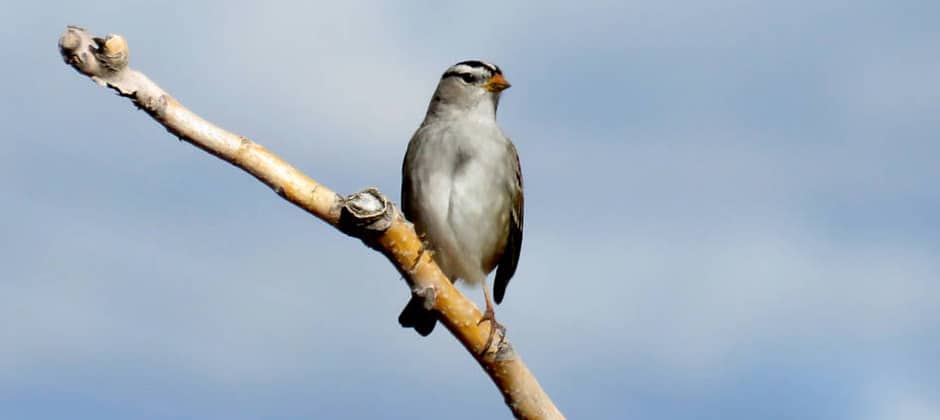Share this article
Birds lose weight, migrate later after consuming insecticide
Birds that have ingested seeds treated with a common insecticide experience weight loss and delay their migrations — effects that could reduce their chances of surviving and reproducing, researchers found.
In a study of white-crowned sparrows (Zonotrichia leucophrys) in Canada, biologists documented the effects in birds that eat the equivalent of just a few seeds treated with the neonicotinoid pesticide imidacloprid — an amount they could be expected to consume in the wild from agricultural fields.
Researchers suspect these impacts could be related to a dramatic decline in some songbird populations.
“This is one of the first studies that is tracking the effects of pesticides in free-living birds,” said Margaret Eng, a postdoctoral fellow in the University of Saskatchewan Toxicology Centre and lead author on the study published in Science. “This significant effect on the stopover duration could really have a carryover effect to potential population-level consequences. We think it could be, in part, one of the contributing factors to the populations declines we’re seeing.”
Neonicotinoids are often applied as a seed coating to protect crops from harmful insects, but when the chemicals are exposed in the environment, studies have found they can affect pollinating insects as well as birds.
The research used laboratory dosing and lightweight tagging technologies that allowed biologists to see how birds responded during a stopover in southern Ontario on their spring migration. After capturing sparrows in the field, the team exposed individuals to small doses of the pesticide and measured their body composition before and after exposure. Attaching a lightweight radio transmitter to the birds allowed researchers to track their movements through the Motus Wildlife Tracking System, a network of towers that picks up signals from the tiny transmitters.
Researchers found that birds given a higher dose of the pesticide lost 6% of their body mass within six hours, causing the birds to stay an average of 3 ½ days longer than birds in a control group at the stopover site before resuming migration. Eng attributed the results to appetite suppression caused by the insecticide.
By providing and measuring the doses in the laboratory, Eng said, researchers were able to establish “this very clear link between exposure and declining body condition and then a longer stay at the stopover site,” she said.
Eng suspects the pesticide may be tied to a decline in many bird species that rely on agricultural lands.
“The vast majority of research to date looking at neonicotinoids has really focused on pollinators and other beneficial insects,” she said. “We are just starting to know more about both the exposure to neonics and its effects on birds.”
Header Image:
White-crowned sparrows delayed their migrations after consuming neonicotinoid pesticides.
©Deanna Nichols, USFWS








